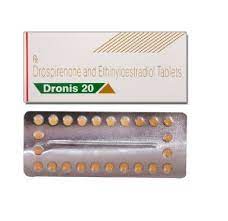Birth Control Medicine: Empowering Reproductive Choices
Birth control medicine has revolutionized reproductive health, offering individuals the freedom to make informed decisions about family planning. From oral contraceptives to intrauterine devices (IUDs), birth control methods have evolved to provide options that cater to diverse needs and preferences. In this comprehensive guide, we will explore the world of birth control medicine, its types, mechanisms, and considerations for those seeking to take control of their reproductive health.
Understanding Birth Control Medicine:
Types of Birth Control:
- Learn about various birth control methods, including hormonal and non-hormonal options, barrier methods, and long-acting reversible contraceptives (LARCs).
Mechanisms of Action:
- Explore how different birth control methods work to prevent pregnancy, whether by inhibiting ovulation, altering cervical mucus, or preventing fertilization.
Types of Birth Control Medications:
Oral Contraceptives:
- Understand how birth control pills work and the various types available, such as combination pills and progestin-only pills.
Intrauterine Devices (IUDs):
- Explore the benefits and considerations of IUDs, including hormonal and non-hormonal options.
Birth Control Injections and Implants:
- Learn about long-acting methods like birth control injections (Depo-Provera) and contraceptive implants (Nexplanon).
Considerations and Precautions:
Consultation with a Healthcare Provider:
- Seek guidance from a healthcare provider to determine the most suitable birth control method based on individual health, lifestyle, and reproductive goals.
Potential Side Effects:
- Be aware of potential side effects and risks associated with birth control methods and discuss them with your healthcare provider.
Reproductive Freedom and Well-Being:
Family Planning:
- Understand how birth control medicine empowers individuals to plan their families and achieve their life goals.
Reproductive Health and Choices:
- Embrace the importance of reproductive health and informed choices in nurturing overall well-being.
Conclusion:
Birth control medicine offers a wide array of options to cater to diverse reproductive needs and preferences. By understanding the types of birth control methods, consulting with healthcare professionals, and making informed choices, individuals can take control of their reproductive health and make decisions that align with their life aspirations. Remember, reproductive freedom and well-being are essential aspects of a healthy and fulfilling life.





.webp)


